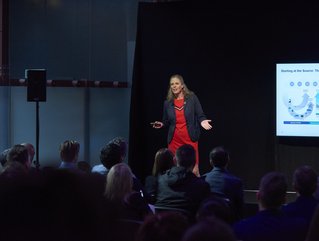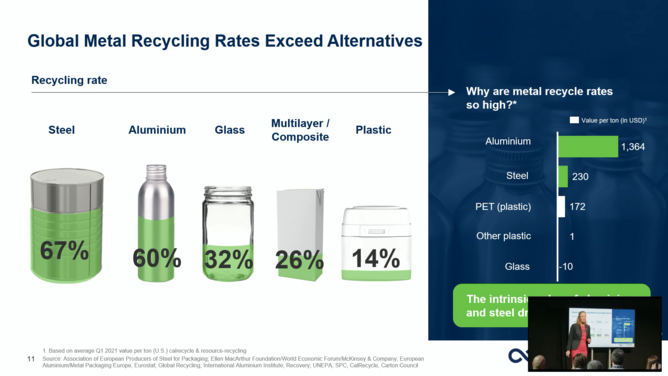Trivium Packaging sets the scene for sustainable recycling

Recycling is no longer seen as the sole practice in eliminating waste and alleviating more single-use plastics from landfills. For organisations to really make a sustainable difference, a circular economy is a way forward and businesses are now being built on the premise of zero waste.
Headquartered in Norfolk, UK, Trivium Packaging has taken on this mission as it produces aluminium products, such as cans, bottles and tins that are designed and manufactured with the intention of an infinite life cycle. Jenny Wassenaar, Chief Sustainability Officer at Trivium Packaging, joins us at Sustainability LIVE to talk about Trivium Packaging and how it is built on sustainability.
“Sustainability is an imperative these days. We cannot go beyond sustainability anymore, so make sure that it’s at the board level and in your discussions every day,” says Wassenaar.
Packaging sustainability requires innovation
Wassenaar delves into the thought process behind Trivium's innovative packaging solutions, saying that the packaging doesn’t matter. She explains that the importance lies in the product itself—food, beverages, paints, etc—and making sure that packaging quality matches that of its contents, but is also safe—particularly with food products.
According to the information Wassenaar provides, 67% of consumers consider themselves environmentally aware, but 3% of global emissions still come from packaging alone. She also presents some key insights from the company’s research, which determined the trajectory of Trivium with metal packaging being a highly-recyclable product, but it is also more likely to be recycled by consumers.

According to a well-presented infographic, the recycling rate of aluminium is around 60% while multilayer composite materials are at 26% and plastics at 14%. Wassenaar also highlights that no material is 100% recyclable and innovation is required to achieve that.






